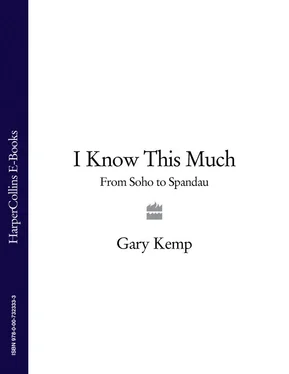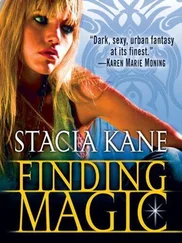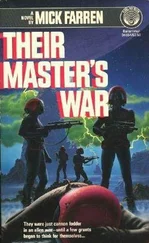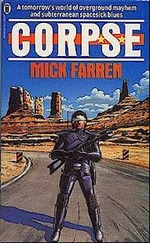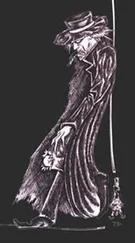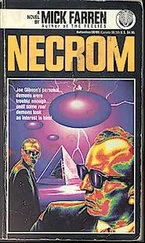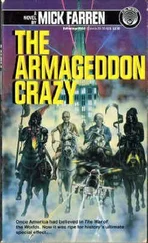The house contained no bathrooms, and the only toilet was outside in a small walled yard where my father had once kept chickens that he horrifically ‘burst’ by swelling their stomachs with an inappropriate diet of barley. On one side stood a brick air-raid shelter full of paint pots, rusting bicycles and hidden creatures. On the wall hung a tin bath that I never remember coming into the house—a ‘good wash’ was always had in the kitchen sink. I only remember this being once a week, unless my father took me to the local baths, where I’d lie tense and repulsed in one of their large cubicled tubs, with its flaking enamel and worryingly brown rust spots, timidly calling, ‘More hot water, please’ to the old geezer patrolling the corridor outside. Our outside toilet was a reeking, damp home for insects, and although torches were required in the evenings, it was beyond the call of nature to visit it at night. I also feared the empty basement that you had to pass to get to it, especially in the knowledge that the old woman had recently rotted there, not to mention our cat Ginger, who’d spent his last hours of life spewing on the dusty floorboards. To make things worse, in winter the pipes would freeze and the cistern would stop working altogether. Night-time relief was had in a bucket, and it was common in the morning to see Uncle Percy or Aunt Jean carrying theirs down to the loo. A stroke had taken Eliza before I was born andWalter just after, so my uncle, now married, lived upstairs with his wife and two children. We were joined in the house by my older cousin, her Turkish-Cypriot husband and their son, who all moved into the old ground-floor rent office when the council took over the property and turned the room into a dwelling.
It was now a house full of relatives (and, oddly, a monkey—my cousin’s husband having bought one in Club Row market as a pet); and although the three families kept themselves separate, sequestered on their different floors, the children claimed the doorstep, the yard and the damp basement space for their adventures in imagination.
Rotherfield Primary stood at the end of the street; a typical redbrick Victorian state school, infused with the smell of sour milk and hot plimsolls. The rule for boys was to wear shorts until they were eleven, which gave the local long-trousered schools great ammunition to abuse us with. In June, shorts made sense, but in winter we were a swarm of goosebumps. Towards the end of my time there my mother thought it too extravagant to buy me a new pair, even though I’d reached a size where my hulking thighs were bursting out of my shorts like escaping sausage meat, and when I sat down they’d ride up and resemble a pair of worsted underpants.
My parents were constantly pushed to the limit of their purse just buying what was necessary, and so to give love and save cash my mother knitted jumpers for us. I particularly remember a rusty brown one that I wore proudly for school the day it was finished, although I was a little unsure about the jagged blue ‘G’ she’d sewn on its breast. Martin, of course, had a perfectly straight ‘M’.
I was spotted—for rust can be a little lurid—as soon as I entered the school gates. I’d forgotten about the ‘G’.
‘That stands for Germ!’ A playground nasty confronted me; even at eight, he already had the worn face of a man. ‘Look! G for Germ!’ He was now pointing out his witty discovery to his host of sycophants. The phrase became a ringing tune repeated endlessly for my benefit by more and more of his cronies. I never wore the jumper again without tears.
Even visiting barbershops seemed frivolous when my dad could easily do it himself. It was the era of the as-seen-on-TV gadget, and the kings of these domestic necessities were K-Tel. They’d sell you things that you never knew you needed, with chirpy, urgent voiceovers and slick demonstrations. Vegetable choppers, knitting machines, even hair trimmers arrived at our house. This last device was designed to trim the hair by just combing it through. In actual fact, it tore the hair in random places as it ripped its way down; a medieval torture instrument by any other name. My father would force us on to a chair and then begin his Sweeney Todd-like operation. You’d sit and pray for no pain, but then it would catch on a knot or a curl and successfully remove your hair whole from its follicle. It felt as if it had been yanked from the back of your eye and you jumped like a galvanised frog. To make things worse, the more haircuts my dad administered the blunter the ‘trimmer’ became. When it was over I’d sit in the chair, shoulders covered in broken pieces of hair, and wipe away tears. I’m not sure if these homemade haircuts were actually to save money or simply to satisfy my father’s love for DIY.
He was creative with his hands, and apart from the usual shelves and decorating, if there was a fancy dress competition or an Easter hat parade then Martin and I would invariably be wearing something grand, often mechanical, and always of a winning formula. I felt his love for us through the time and effort he put in, and the Kemp boys stood out at school because of it; though not always in the way we would have chosen.
My brother had a fully working windmill bonnet made for him once, and I remember awkwardly walking to school dressed as a knave-of-hearts playing card—a large painted box hung on me from braces, while a hat and straw wig finished off my nursery-rhyme look. Embarrassingly, I won. As usual.
On one awful occasion, though, my mother cried over what I had to wear. I was crossing the street and must have been struggling to walk as my shoes were too tight. My poor mother was mortified—they had no money at the time to buy me a new pair. I didn’t think we were any different—everyone we knew owned very little; houses were rented, and everything we sat on, slept on, drove in and watched was on HP. Constant saving through ‘Christmas Boxes’, coupons or Green Shield Stamps would pay for holidays, and bottles were always returned promptly for their thruppence deposit.
My parents needed to work hard for money, and at times our front room resembled a factory. My father not only worked Saturday mornings but also brought home work for some extra cash, and for a while we had a small printing press squeezed into a corner. The smell of ink soon became a familiar, homely one. My mother also worked from home as a machinist, stitching up ‘golliwogs’ among other things, and the rattle of the Singer sewing machine andMum’s frantically pedalling foot became our constant soundtrack.
To a child, things reveal themselves in symbols. Once, for a curious, forgotten reason, but probably to find money for sweets, I reached into my mother’s coat pocket as it hung over a chair. Not only was I surprised to find the pockets empty, but also both of them had holes, and my hand reached down into the dusty lining. It shocked me and I snatched my hand away. It felt as though I’d discovered something hidden about my mother. And, possibly, about us.
Like Dad,Mum was the youngest of a family of five children. She knew very little about her father, Thomas Green, as he’d died from gangrene before she was born, and so hated was he that he was never mentioned thereafter. A drinker and a bully, this road-worker of Irish descent, proudly born on St Patrick’s Day, would terrorise the home—when he chose to be there, as he often vanished for long periods of time. His background is unknown, his Catholic family having ostracised him when he married Elizabeth Bristow of Shoreditch, an Anglican with no previous pious convictions. ‘Liz’—ten years his junior—worked in the local bathhouse and blamed her later debilitating rheumatoid arthritis on the dampness of her workplace. A woman in constant pain when I knew her, she rarely spoke to me, and because of her ‘bad legs’ played little with her grandchildren.
Читать дальше
